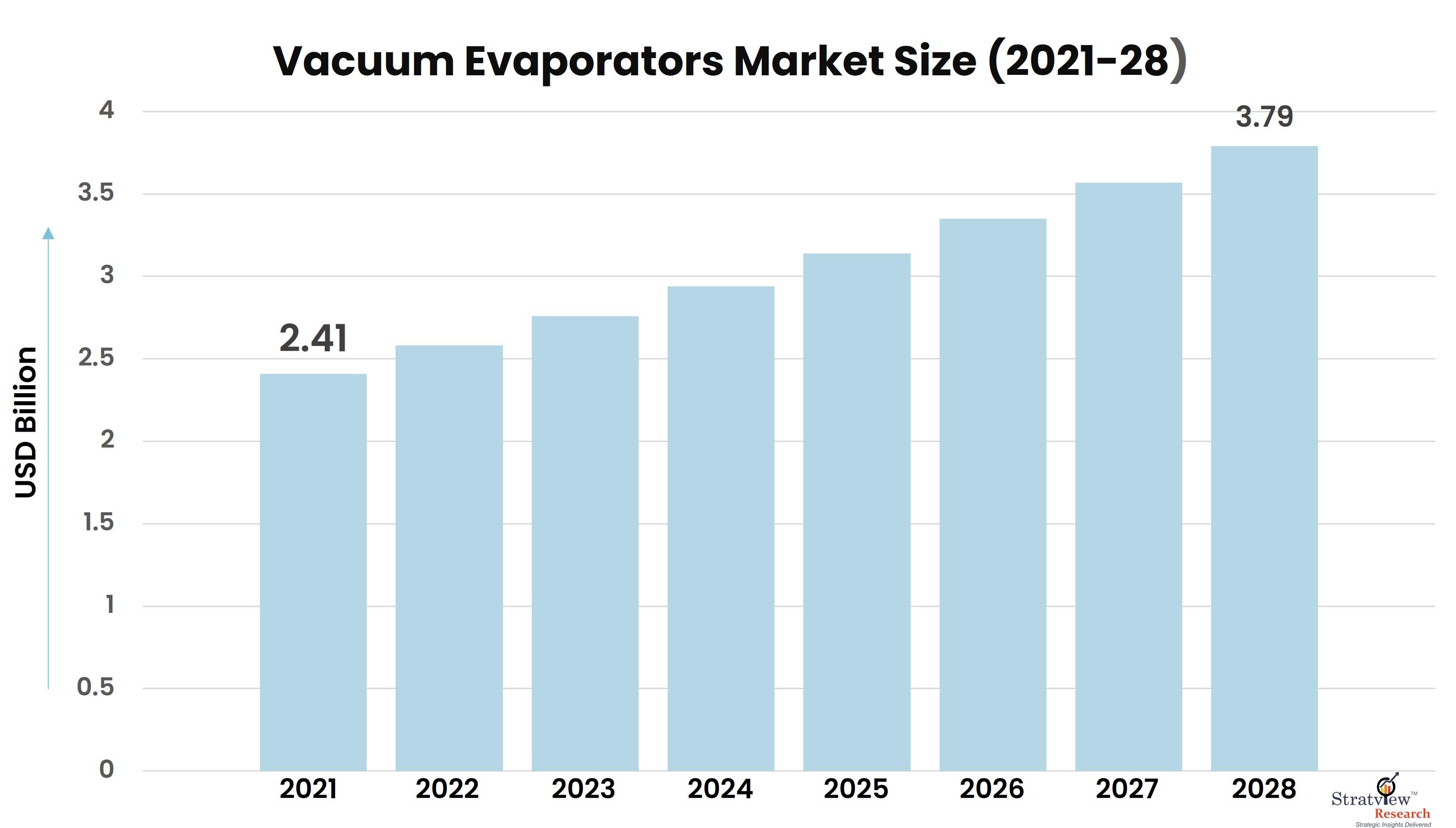Efficiency and Innovation: Exploring Vacuum Evaporators in Various Industries

According to Stratview Research, the vacuum evaporators market was estimated at USD 2.41 billion in 2021 and is likely to grow at a CAGR of 6.61% during 2022-2028 to reach USD 3.79 billion in 2028.
In a world grappling with issues like water scarcity, industrial wastewater, and environmental sustainability, innovative solutions are more crucial than ever. Among the technologies rising to meet these challenges, vacuum evaporators have emerged as indispensable tools for various industries. This article explores the rapidly growing vacuum evaporators market, the challenges they address, and the potential they hold in shaping a sustainable future.
A Fundamental Tool for Concentration and Wastewater Management
Vacuum evaporators are heat-driven systems that use reduced pressure to lower the boiling point of liquids, facilitating the removal of water or other solvents. They are employed for various purposes, including the concentration of solutions, the recovery of valuable substances, and the treatment of industrial wastewater.
Key Market Drivers
Several factors are contributing to the growth of the vacuum evaporators market:
Environmental Concerns: With increased awareness of environmental issues, industries are looking for sustainable solutions to manage wastewater and reduce their environmental footprint. Vacuum evaporators are known for their efficiency in treating and minimizing industrial wastewater.
Water Scarcity: Water scarcity is a global concern, and water recovery and reuse are becoming priorities. Vacuum evaporators play a crucial role in the recovery of clean water from industrial processes.
Industrial Applications: Various industries, such as food and beverage, pharmaceuticals, chemicals, and electronics, rely on vacuum evaporators for concentrating liquid solutions, reusing solvents, and managing waste streams.
Stringent Regulations: Stringent regulations on industrial discharge and effluents have pushed companies to invest in efficient wastewater treatment technologies, boosting the demand for vacuum evaporators.
Applications Across Industries
The vacuum evaporators market serves a wide range of industries, each with specific needs and challenges:
Wastewater Treatment: In industries like chemical manufacturing and metalworking, vacuum evaporators effectively remove contaminants and reduce the volume of wastewater for safe disposal or potential reuse.
Food and Beverage: Vacuum evaporators are used to concentrate fruit juices, dairy products, and other food and beverage products, contributing to energy and cost savings.
Pharmaceuticals: Pharmaceutical companies use vacuum evaporators in the production of medications, ensuring precise concentration and solvent recovery.
Chemicals and Petrochemicals: These industries rely on vacuum evaporators to recover and recycle solvents, reducing operational costs and environmental impact.
Electronics: Vacuum evaporators are employed in the electronics industry for the purification of chemicals and the treatment of wastewater generated during semiconductor manufacturing.
Sustainability and Economic Advantages
One of the notable strengths of vacuum evaporators is their ability to support sustainability efforts. By concentrating solutions and recycling valuable components, they reduce waste, save energy, and minimize the environmental impact of industrial processes. In addition to these sustainability advantages, they offer economic benefits through reduced operational costs and improved resource utilization.
Future Growth and Innovation
The vacuum evaporators market is expected to continue its growth trajectory as industries recognize the importance of sustainable practices and efficient resource management. Advancements in technology, including improved heat exchange systems, automation, and energy-efficient designs, are likely to drive innovation within the sector.
In Conclusion
The vacuum evaporators market is rising to the challenge of addressing critical issues such as wastewater management, water scarcity, and environmental sustainability. As industries across the board seek sustainable and economically viable solutions, vacuum evaporators have proven their worth by providing efficient wastewater treatment, resource recovery, and concentration of valuable products.
With ongoing innovations and a growing emphasis on responsible industrial practices, the vacuum evaporators market is well-positioned to play a pivotal role in shaping a more sustainable and efficient future. As we confront the challenges of our time, these advanced systems are indeed rising to meet them, offering both environmental and economic advantages for a wide range of industries.
- Information Technology
- Office Equipment and Supplies
- Cars and Trucks
- Persons
- Books and Authors
- Tutorials
- Art
- Causes
- Crafts
- Dance
- Drinks
- Film
- Fitness
- Food
- Jeux
- Gardening
- Health
- Domicile
- Literature
- Music
- Networking
- Autre
- Party
- Religion
- Shopping
- Sports
- Theater
- Wellness


